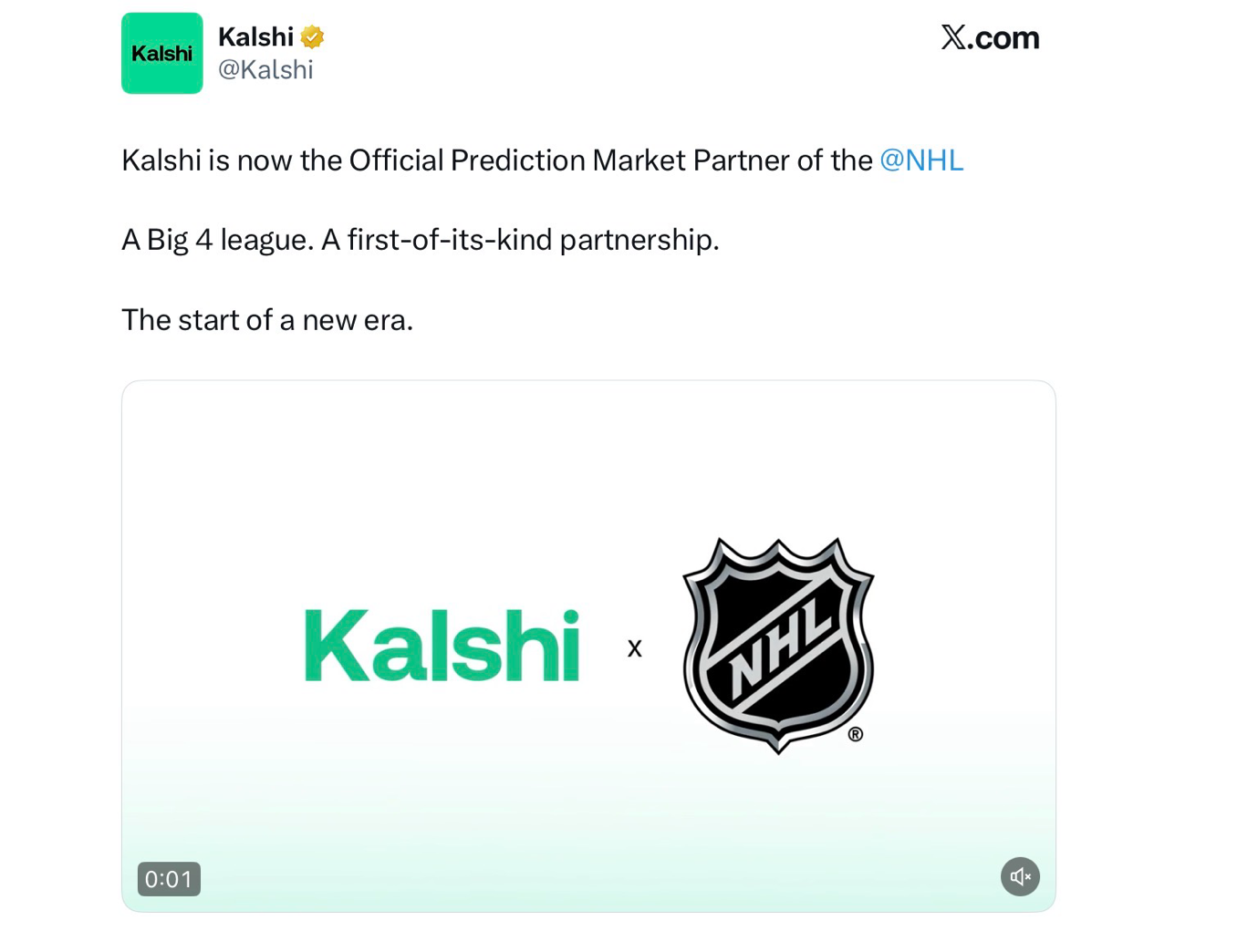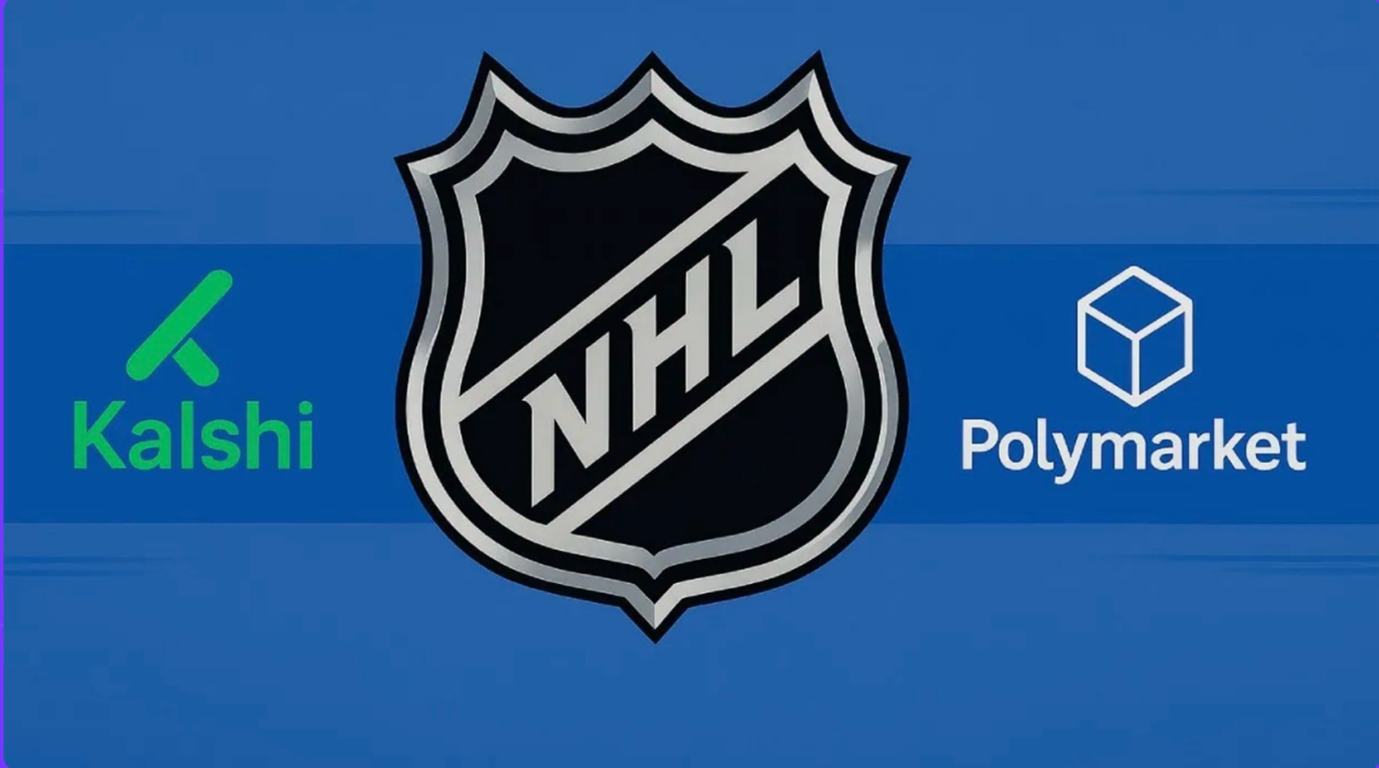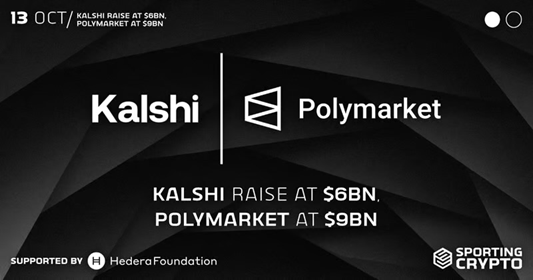 |
| By Mark Gough |
Yesterday, the National Hockey League made history — and not just in sports.
It became the first major U.S. pro league to partner with prediction market platforms Kalshi and Polymarket officially.
That’s right — the same tools once dismissed as “crypto casinos” just got the seal of approval from a billion-dollar sports brand.
This deal doesn’t just change fan engagement.
This could mark the moment where prediction markets officially cross over into the financial mainstream.

‘Here to Stay’
The NHL’s new multi-year agreements grant Kalshi and Polymarket the right to use official NHL data, logos and phrases like “Stanley Cup” in their trading markets.
In return, Kalshi and Polymarket get prime digital ad space during televised games.
That includes virtual signage right on the ice.
That’s not sponsorship fluff …
It’s institutional validation for a sector that’s spent years fighting accusations of being “unregulated gambling.”
Kalshi CEO Tarek Mansour called it “a milestone for the industry.”
He added that prediction markets are now “here to stay.”
Why This Moment Matters
Prediction markets have exploded in 2025:
- Kalshi’s valuation jumped from $2B to $6B in just three months.
- Polymarket raised $2B from the Intercontinental Exchange (ICE) — owner of the NYSE. Its valuation jumped to $9B.
- Trading volumes now top $1B per week. That’s up more than 200% year over year.
It’s clear that institutional capital now recognizes that markets based on human prediction — not just assets — are the next frontier.
Plus, Kalshi holds a license from the U.S. Commodity Futures Trading Commission. It’s operated as a federally Designated Contract Market since 2020.
That means it can operate in all 50 states.
And because it doesn’t have to deal with state-level regulators, it can bypass many of the restrictions that still hinder traditional sportsbooks.
Betting or Trading?
Critics say prediction markets are just sportsbooks in disguise.
Proponents argue they’re financial exchanges — where traders buy event contracts and profit from market-driven probabilities.
In other words, they don’t take the other side of your bet. They facilitate price discovery — like a stock exchange.
That’s why Kalshi, under CFTC oversight, can operate on the same level as a futures and derivatives exchange.
But its federally regulated status now faces a challenge.
Eight U.S. states have filed complaints. And the legal outcomes could determine the entire industry’s future.
The NHL Is Skating Where the Puck Is Going
There’s a saying in hockey to skate where the puck is going, not where it’s been.
So, with its new multiyear licensing deals with Polymarket and Kalshi, the NHL seems to believe it’s making a bet on the future.
Still, the NHL’s betting footprint is small — only 2% to 3% of total U.S. betting volume — so it had little to lose by experimenting.
What it gains, however, could be huge:
- A bridge to younger, tech-savvy audiences drawn to crypto and prediction markets.
- A new model for interactive fan engagement that goes beyond betting slips.
- A first-mover advantage if prediction trading becomes a mainstream category.
The deals apply only to U.S. teams, avoiding Canada’s stricter regulatory environment.
🚀 The Bigger Picture
The NHL’s move could be the tipping point that propels prediction markets into the global spotlight.
Because the dominoes are already falling:
- Robinhood (HOOD) integrated Kalshi this year. Its users now drive up to 35% of trading volume.
- DraftKings (DKNG) bought a CFTC-regulated exchange.
- FanDuel is co-developing prediction markets with CME Group (CME).
And now, a major North American sports league has officially joined the game with …
A Bet on Something Bigger Than Sports
The NHL’s partnership with Polymarket and Kalshi is much bigger than sports.
It’s about the evolution of markets themselves — where opinions, probabilities and information become tradable assets.
As Kalshi’s CEO put it:
“It should be clear now — prediction markets are here to stay.”
The TL;DR of the NHL Licensing Deals
The ability for Polymarket and Kalshi to now use trademarked terms … including team names … on its app and website may seem small.
But the prediction markets aren’t going anywhere. Not anytime soon. Not with:
- Mainstream validation: The NHL’s partnership marks the first time a U.S. pro league has formally embraced prediction markets.
- Institutional money flooding in: The ICE, Robinhood and top venture funds are now deeply invested in Polymarket and Kalshi.
- Legal clarity equaling massive upside potential: If courts side with the CFTC, prediction markets could become a new multibillion-dollar asset class.
- Fan engagement 2.0: Once the audience gains traction, expect other leagues and maybe even election markets to follow.
If you’d prefer to bet on cryptos rather than sports, elections or just about any other asset you believe is going to win, you’re in good company here.
You can go to Polymarket or Kalshi to bet on where Bitcoin’s price will be at year end, for example.
Or you can watch Juan Villaverde’s brand-new presentation about what he sees for Bitcoin … along with several of today’s top cryptos.
Not just whether they’re going up or down, but exactly when he expects those moves to take place.
Click this link to learn more.
Best,
Mark Gough



